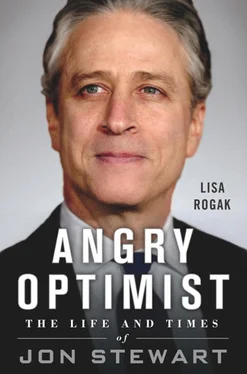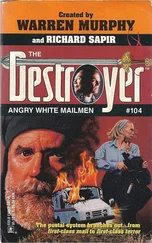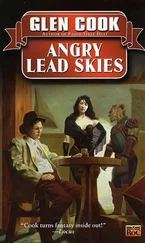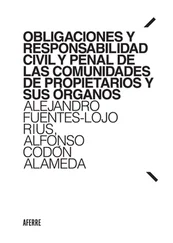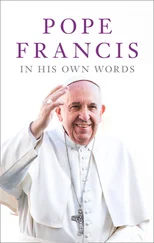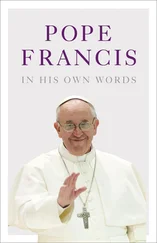
Stewart takes his three-legged dog, Champ, for a walk in New York in spring 2013. (Courtesy FameFlynet Pictures)
Both Tracey and Jon were totally enthralled with being parents. “We both think the same things are funny and we both value the same things. So parenting for us is very easy as far as our relationship goes because we always see eye to eye [with] the kids,” said Tracey. “Nate is very gentle, sweet, sensitive, emotional, and kind and loves Star Wars and football, while Maggie is hilarious and irreverent, like her dad in girl form…. I always say that she’s me on the inside and Jon on the outside. And Nate is Jon on the outside and me on the inside.”
Unlike many celebrities and people in the public eye, Stewart purposely avoids the spotlight. “I’m not a particularly social animal,” he said. Indeed, he rarely attends black-tie events in Manhattan and once even passed up the chance to pick up an Emmy at the annual awards ceremony. “You go to a party, those people don’t need you to open shit or help them get their pants on. So they’re not nearly so nice to you.”
One of the Stewart family’s favorite things to do is to watch the Food Network, particularly Restaurant Impossible, Cupcake Wars, Chopped, and Iron Chef . Though Tracey doesn’t like to cook, the food shows have motivated both Nate and Maggie to learn to cook.
While Stewart’s outlook and priorities were changing and he seemed understandably exhausted, he may have become less funny than he used to be for another reason: when he first started hosting the Show back in 1999, Stewart still expected that his efforts would bring about some kind of change in the world, particularly the divisive, bitter world of American politics. Maybe it was a bit unrealistic, but he had held out hope that he could make a difference. While he still felt that way, it had become clear he had to shift gears and take real action in order to put his beliefs to the test.
So on December 16, 2010, Stewart devoted the entire Daily Show to the fact that thousands of September 11 first responders were suffering from some serious health problems. Even though Congress had crafted a bill that would give firefighters, policemen and -women, and EMTs a wide range of benefits to help them deal with it, a Republican filibuster late in the session—and before their lengthy vacation—stalled the bill, making it unlikely to pass. He also predictably chided the news media for not calling attention to the issue.
Stewart and his producers put their heads together and handpicked a roundtable of first responders to appear on a panel to tell their stories. A few days later, Congress ferried the bill through a vote and passed it. The local firemen were so thrilled that they threw a birthday party for Stewart’s daughter at the firehouse—complete with a fire truck–shaped birthday cake—and Robert J. Thompson, a professor at Syracuse University, instantly vaulted him to having the same status and influence as both Walter Cronkite and Edward R. Murrow, veteran newsmen who used their influence to turn around, respectively, a war and a government witch hunt.
Even though Stewart emphatically maintained time and again that he was not a journalist, a 2007 Pew survey showed that Americans believed Stewart to be on a par with Dan Rather and Tom Brokaw as the most widely admired journalists in the United States. Indeed, upon Cronkite’s death in 2009, Time magazine conducted a poll to ask readers their suggestions for his replacement as “most trusted man in America.” Stewart won with 44 percent of the vote, but predictably downplayed the results.
Despite the feeling of satisfaction Stewart derived from these accomplishments, it was just getting too difficult to bring about the kind of significant change that he hoped for. And there weren’t enough Daily Show episodes in the course of a year to change everything that he felt needed correcting on the political front.
Some missteps were beginning to appear along the way. On a 2009 Daily Show, out of nowhere Stewart told the audience he believed that President Harry Truman should have been considered a war criminal when he dropped atomic bombs on Hiroshima and Nagasaki. Overnight, widespread outrage predictably ensued from all political and social fronts, and Stewart came out with a public apology on the show a couple of days later:
“Right after saying it, I thought to myself: that was dumb,” he admitted. “And it was dumb. Stupid, in fact. So I shouldn’t have said that, and I say right now, no, I don’t believe that to be the case.”
Stewart won kudos from some unexpected fronts, with many conservatives saying he was right the first time. “I was a bit surprised, albeit pleasantly, to see Jon Stewart nail Harry Truman as a war criminal,” opined conservative critic Justin Raimondo, suggesting that it was Comedy Central executives who forced Stewart’s apology, and not his fans. After all, the audience that day actually cheered at Stewart’s announcement during the show.
“Rule number one in this game is that everybody must play their assigned role,” Raimondo continued, “you’ve always got to be ‘in character.’ If you’re on the left, you can take on George W. Bush, murderer of hundreds of thousands of Iraqis—but not Harry Truman, killer of even larger numbers of innocent Japanese civilians.”
Karlin also attempted a feeble save on account of his boss. “Oftentimes, people who say satiric or unpleasant things are labeled as curmudgeons,” he said. “Jon has a very rare gift for being able to deliver material that has bite, but not in a mean or nasty way.”
But not everyone agreed, including a fellow comedian who had good reason to be eternally grateful to Stewart for providing his springboard to stardom. “It’s one thing poking fun at people who deserve it,” said Steve Carell. “But there was [always] that flip side of shooting fish in a barrel. It’s just cruel.”
And even one of his oldest friends, Anthony Weiner, turned on him. “I think that [cynicism] exists because of Jon’s show,” he said. “I think it becomes a feedback loop that’s corrosive. Congressmen do dumb things, then they’re highlighted for doing dumb things, and people watch it and say that congressmen do dumb things, and so then when another congressman does a dumb thing, [Stewart says], ‘Well, my audience wants to watch a congressman do a dumb thing.’ So when the audience laughs at the congressman doing a dumb thing, Jon says, ‘Hey, I got a great scam here, lemme go find another congressman doing a dumb thing.’”
It almost looked like Stewart was starting to realize the futility of his efforts to change politics and its media, where he was tempted to just say “fuck it” and succumb to his hermitlike tendencies. Especially when dealing with people who should know better, like the hosts of national talk shows.
Stewart launched into a diatribe on Larry King Live about the totally artificial front that politicians present to the public, and that they rarely reveal their true selves. “When you get a glimpse behind the façade that they put up, they’re completely different people,” he ranted. “We should stop pretending that they’re not and they should stop pretending that they are these paragons of virtue and beacons of decency.”
King’s response: “So are you saying that all politicians hide themselves from us, their real selves? Is that what you’re saying?”
Stewart’s silence was followed by a heavy sigh before he finally spoke. “Please tell me you didn’t just ask me that.”
Читать дальше
